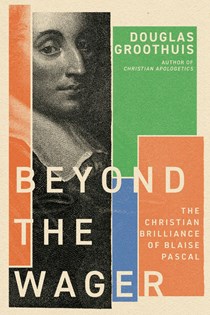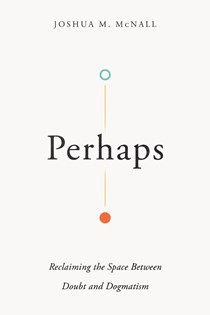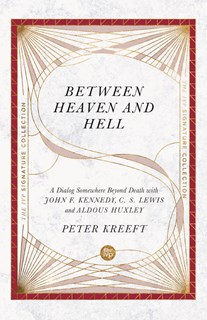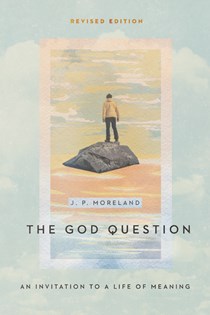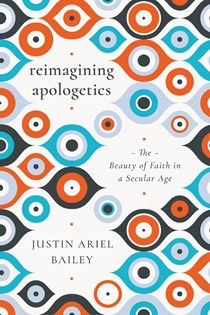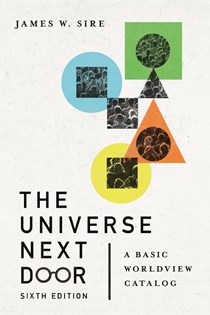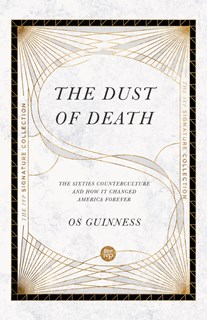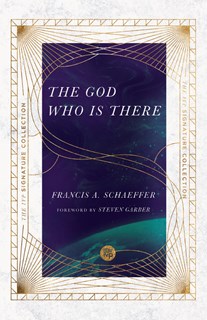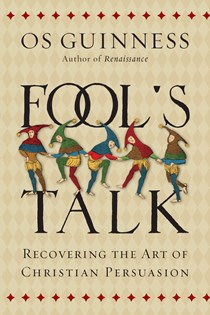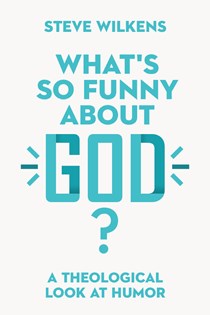Apologetics
-
Beyond the Wager
The Christian Brilliance of Blaise Pascal
by Douglas Groothuis
Blaise Pascal, the seventeenth-century French philosopher and scientist, is perhaps best known for his "wager," an argument about the existence of God. But there was much more to Pascal and his brilliance.
In this accessible and well-documented study, philosopher Douglas Groothuis introduces readers to Pascal's life as well as the breadth of his intellectual pursuits, including ...
-
Perhaps
Reclaiming the Space Between Doubt and Dogmatism
by Joshua M. McNall
The Christian life requires faith. That means that believers are sometimes faced with uncertainty. But is all uncertainty bad?
Theologian Joshua McNall encourages readers to reclaim the little word "perhaps" as a sacred space between the warring extremes of unchecked doubt and zealous dogmatism. To say "perhaps" on certain contested topics means exercising a hopeful ...
-
Between Heaven and Hell
A Dialog Somewhere Beyond Death with John F. Kennedy, C. S. Lewis and Aldous Huxley
The IVP Signature Collection
by Peter Kreeft
On November 22, 1963, three great men died within a few hours of each other: C. S. Lewis, John F. Kennedy and Aldous Huxley. All three believed, in different ways, that death is not the end of human life. Suppose they were right, and suppose they met after death. How might the conversation go?
Peter Kreeft imagines their discussion as part of the great conversation that has ...
-
The God Question
An Invitation to a Life of Meaning
by J. P. Moreland
What does it take to live a meaningful life? Why are so many people in affluent nations so anxious and unhappy? What difference does believing in God really make? Does belief in the God of the Bible truly make sense today?
In this revised edition of The God Question, philosopher J. P. Moreland invites us on a journey to a rich, flourishing life. He digs into the causes ...
-
Reimagining Apologetics
The Beauty of Faith in a Secular Age
by Justin Ariel Bailey
How should one proclaim of the gospel of Jesus Christ in a secular age?
For many Christians, the traditional approach of apologetics has grown stale. In light of the current secular climate, as described by Charles Taylor and others, rhetorical strategies that previously served the church and apologists well are no longer effective.
Justin Bailey seeks to address this ...
-
The Universe Next Door
A Basic Worldview Catalog
by James W. Sire
Foreword by Jim HooverYour Trusted Introduction to the Worldviews That Shape the Western World
For more than forty years, The Universe Next Door has set the standard for a clear, readable introduction to worldviews. Using his widely influential model of eight basic worldview questions, James Sire examines prominent worldviews that have shaped the Western world:
- theism
- deism
- naturalism
- Marxism
- nihilism
- existentialism
- Eastern ...
-
The Dust of Death
The Sixties Counterculture and How It Changed America Forever
The IVP Signature Collection
by Os Guinness
In 1968, at the climax of the sixties, Os Guinness visited the United States for the first time. There he was struck by an impression he'd already felt in England and elsewhere: beneath all the idealism and struggle for freedom was a growing disillusionment and loss of meaning. "Underneath the efforts of a generation," he wrote, "lay dust." Even more troubling, Christians seemed ...
-
The God Who Is There
The IVP Signature Collection
by Francis A. Schaeffer
Foreword by James W. Sire and Steven Garber- Over 400,000 Sold
For over fifty years The God Who Is There has been a landmark work that has changed the way the church sees the world. Francis Schaeffer's first book presents a wide-ranging analysis of the intellectual and cultural climate of the second half of the twentieth century, from philosophy to art to liberal theology. Arguing ...
-
Fool's Talk
Recovering the Art of Christian Persuasion
by Os Guinness
- 2016 Christianity Today Book of the Year in Apologetics/Evangelism
- One of Desiring God's Top 15 Books of 2015
- Hearts Minds Bookstore's Best Books of 2015, Social Criticism and Cultural Engagement
In our post-Christian context, public life has become markedly more secular and private life infinitely more diverse. Yet many Christians still ...
-
What's So Funny About God?
A Theological Look at Humor
by Steve Wilkens
If you don't believe God has a sense of humor, just look in the mirror. Humor is a truly human phenomenon—crossing history, culture, and every stage of life. Jokes often touch on the biggest topics of our existence. And although it may seem simple on the surface, humor depends on the use of our highest faculties: language, intelligence, sympathy, sociability.
To the philosopher ...


